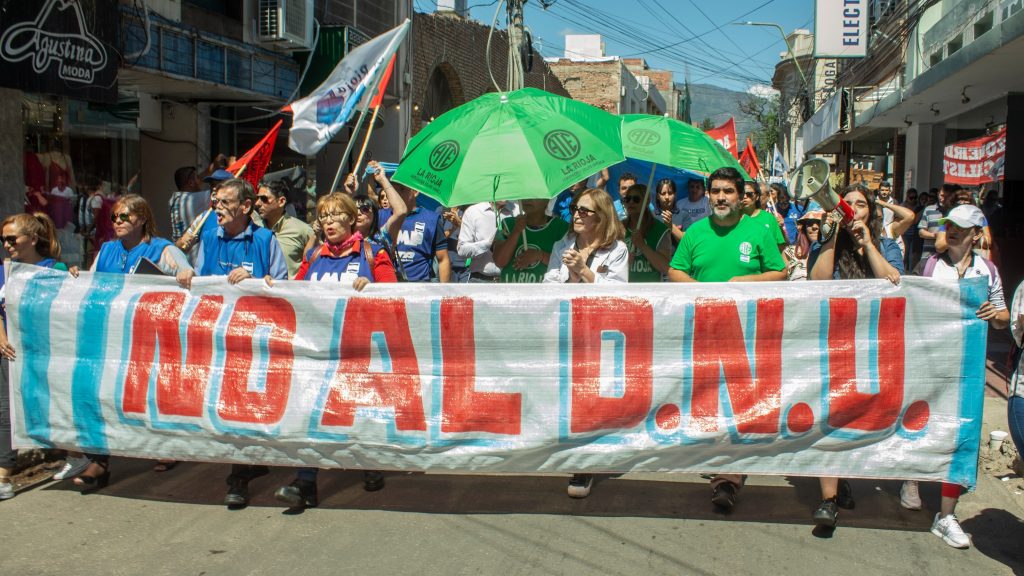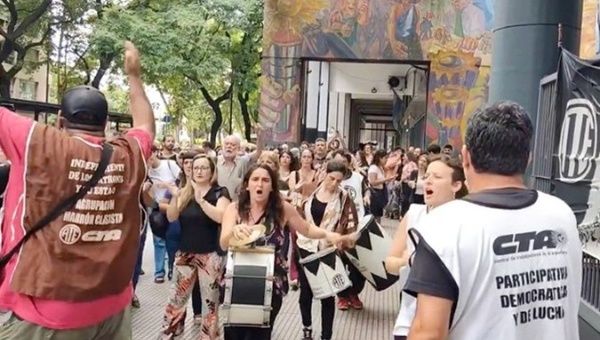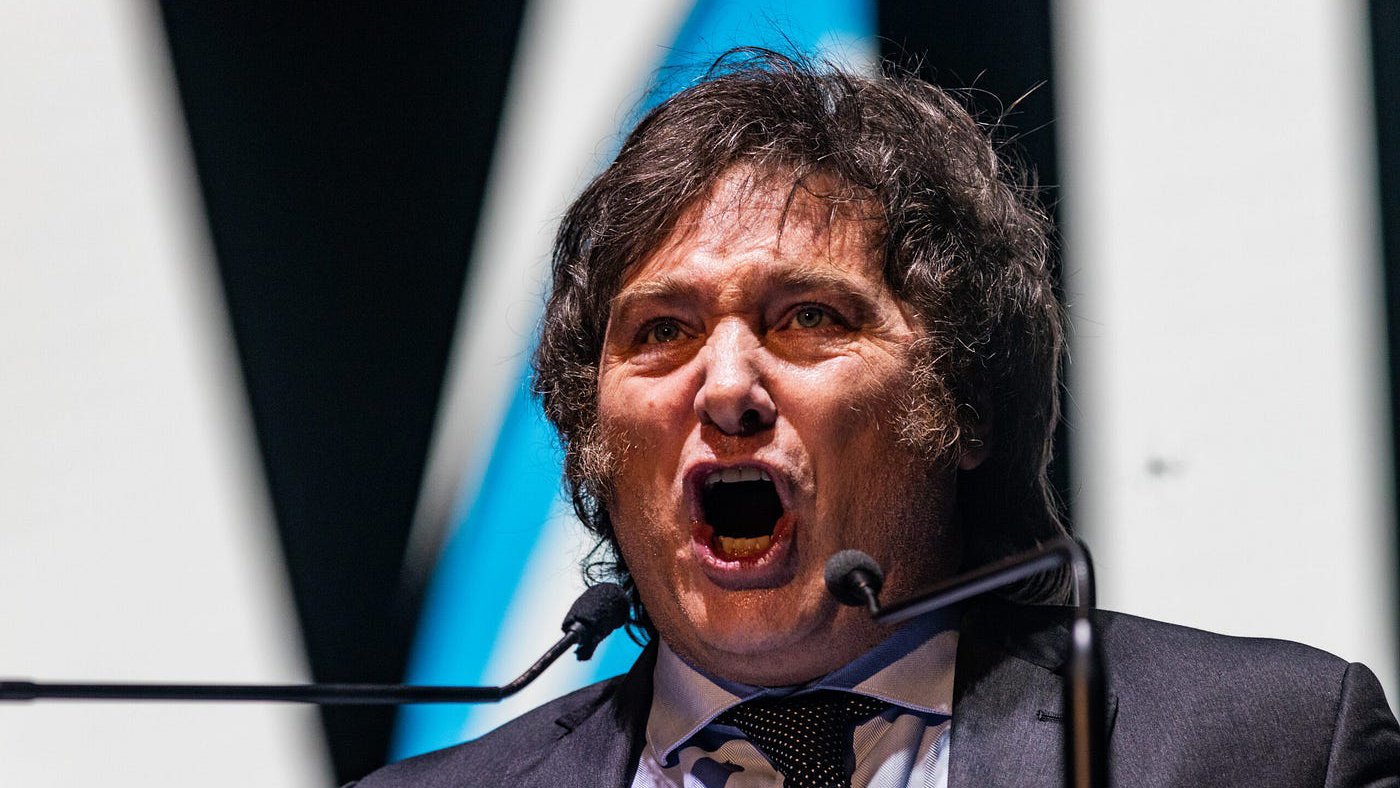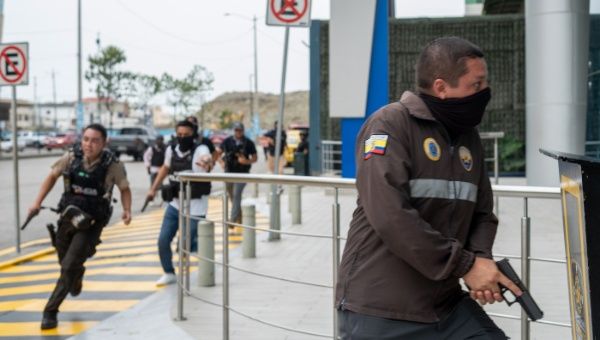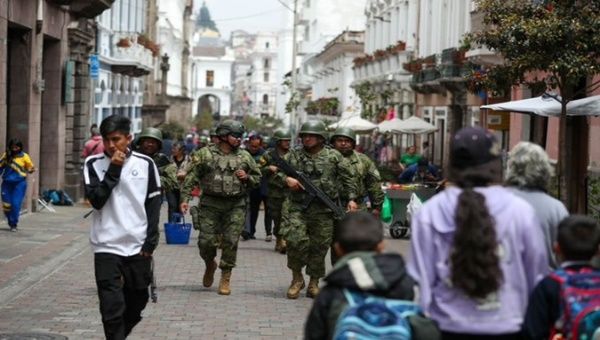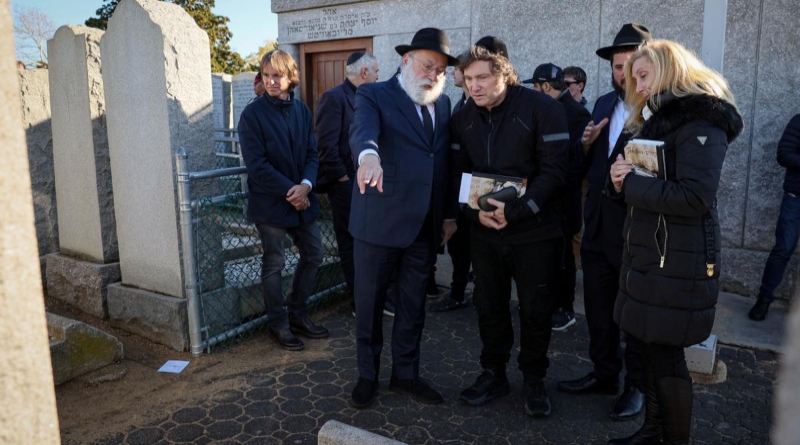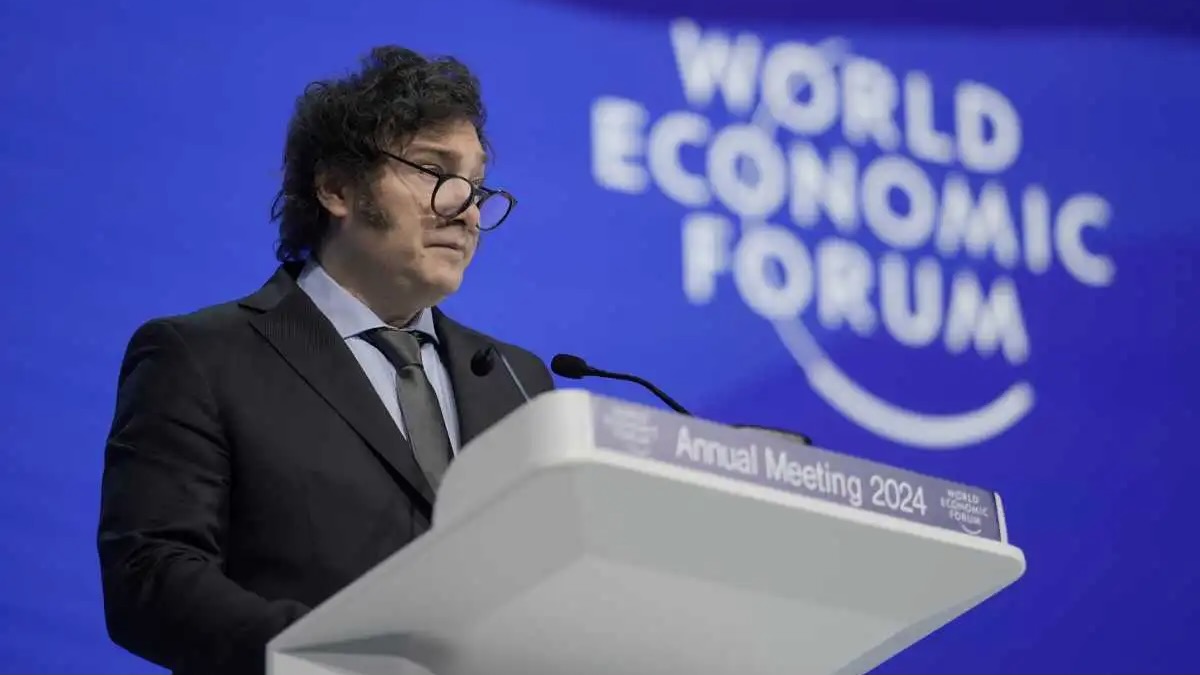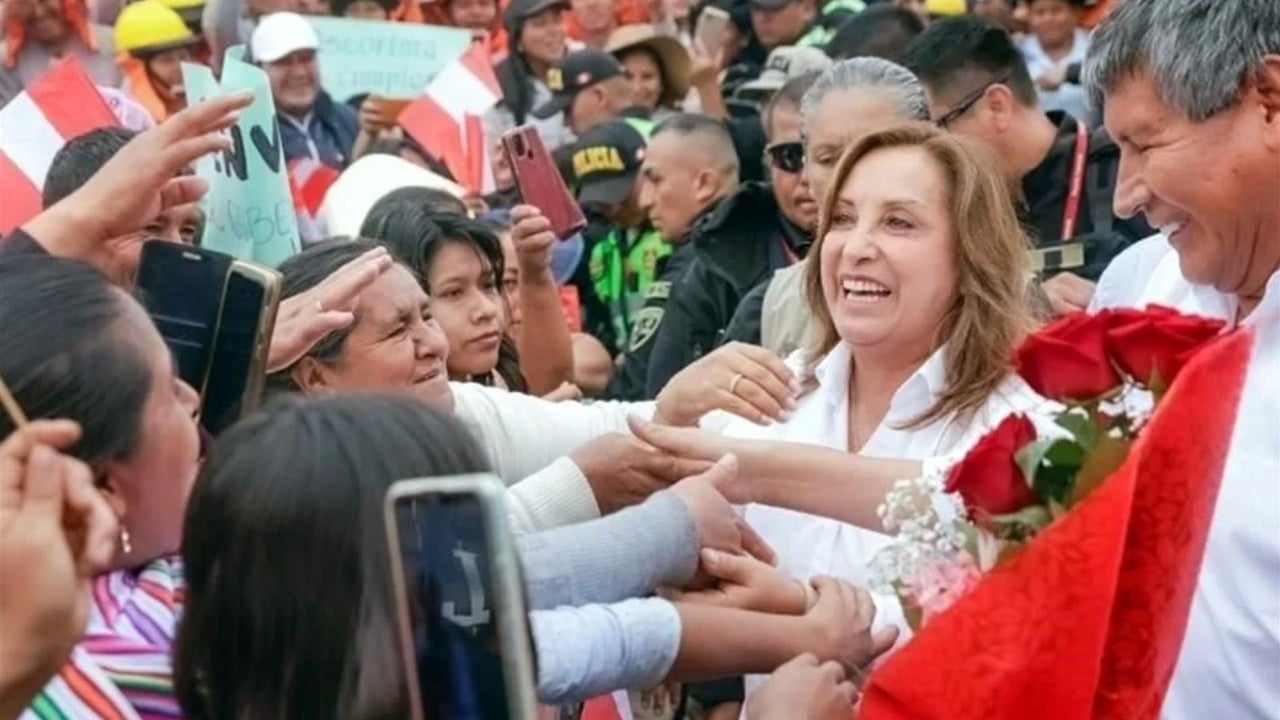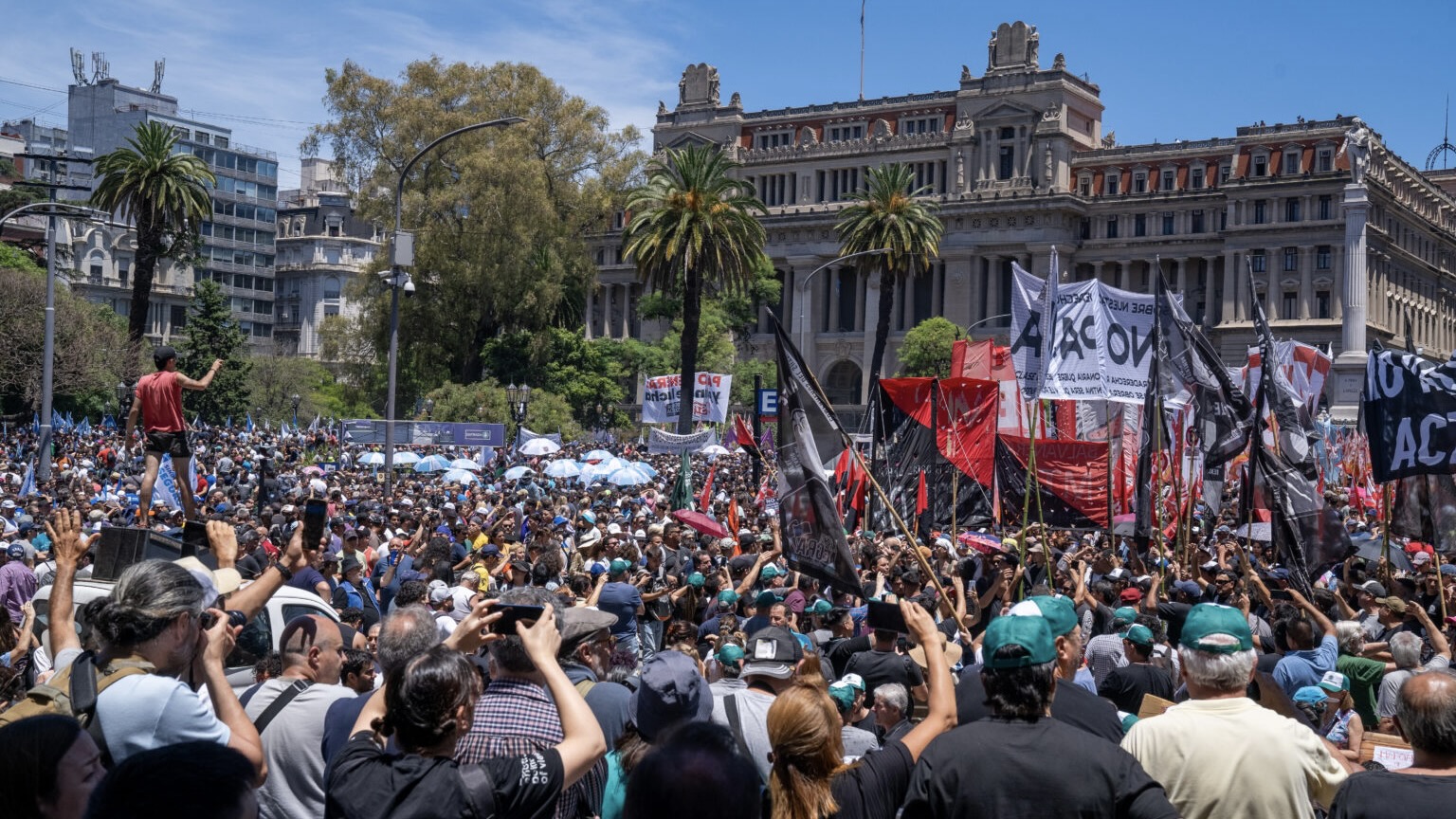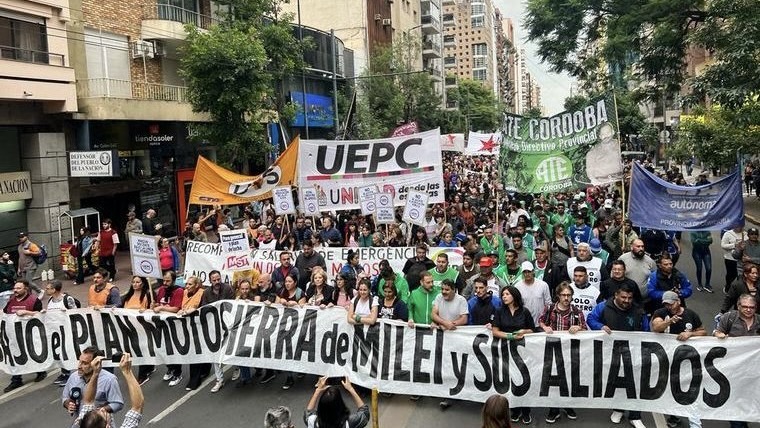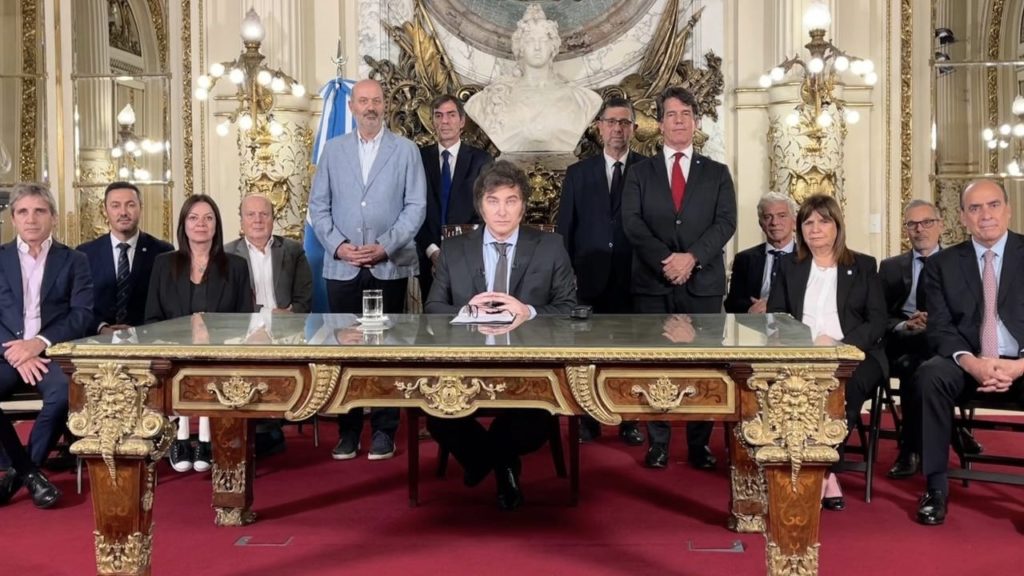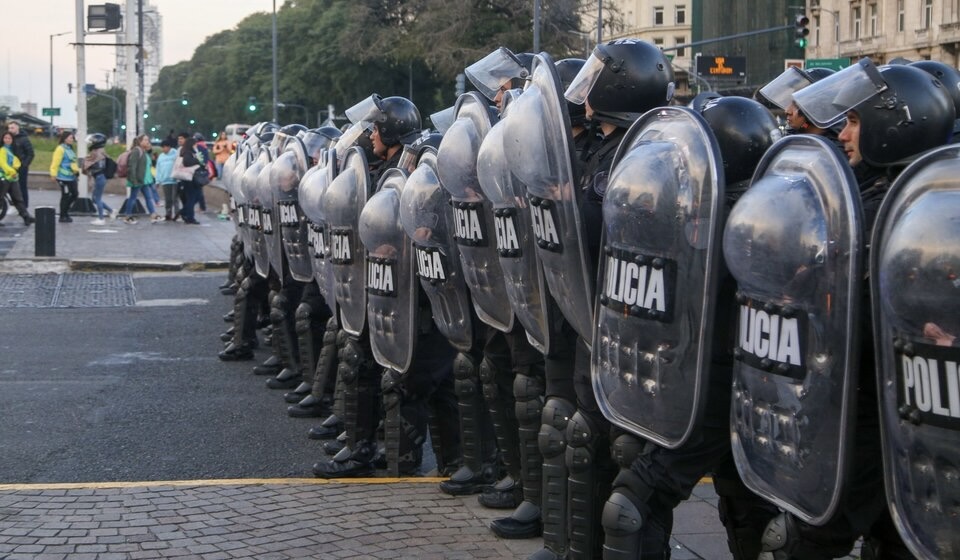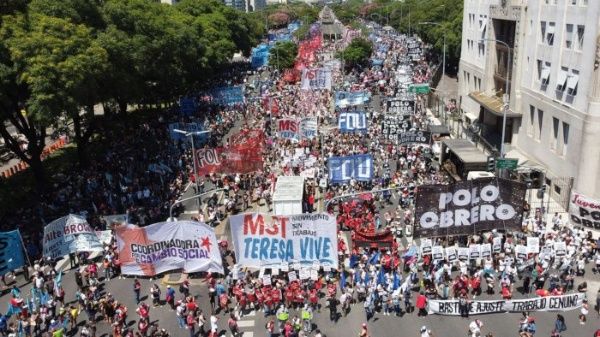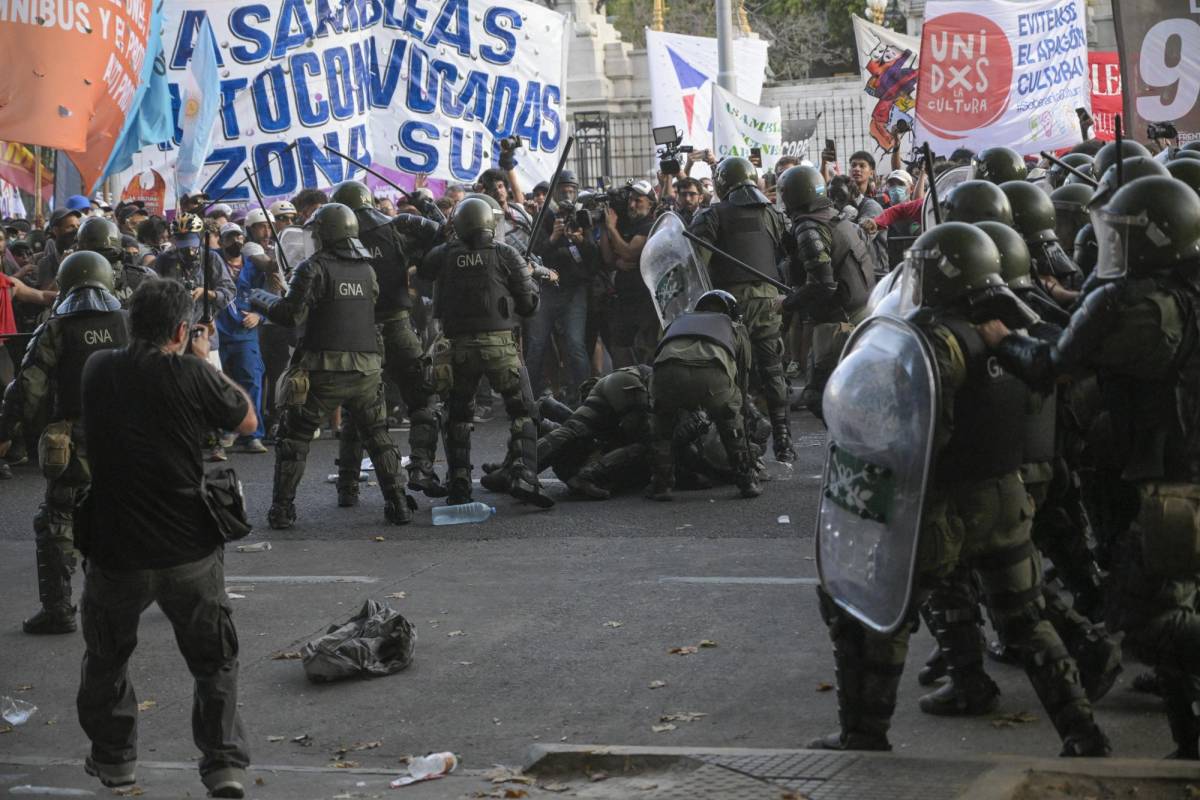A Silent Continental Coup Carried Out by the U.S. Is Underway
Eduardo Vasco
January 24, 2024
Argentina is the pivot of a new stage in the United States’ continental dominance strategy, following the election of Javier Milei. It aims to establish new control over the Americas in the face of a global scenario of intensifying contradictions and accelerated loss of hegemony by American imperialism, within which a new world war is not ruled out.
Milei’s close ties with the U.S. have been exposed mainly by the Argentine and South American alternative press, in addition to the public demonstrations of the recently inaugurated Argentine leader.
The script was nothing new: a supposed “outsider” with strong appeal on social media who promises to bury the “political caste” in the name of the “freedom” of ordinary citizens. A new political party with a movement look. The banner of the “fight against corruption”. This type of candidacy has become fashionable in recent years and it is precisely the recent history that helps to understand the involvement of North American imperialism in this game.
Nayib Bukele in El Salvador, Daniel Noboa in Ecuador, Vladimir Zelensky in Ukraine and Donald Trump in the U.S. are great exponents of this trend – although the latter, unlike the others, is not unanimous within the apparatus that dominates the U.S. establishment. They all came to power following a script also used by Milei. Jair Bolsonaro is also a famous example of this project.
But while these political figures had as tools only social media, their newly created parties and anti-corruption demagoguery, U.S. involvement was hidden from most observers. However, they then began to receive great attention from the mainstream media, to hold meetings with large businessmen, to receive praise from bankers and foreign actors to, finally, come to power.
In Milei’s case, it is even easier to recognize his relationship with American imperialism. Unlike Bukele and Noboa, and as well as Bolsonaro, Argentina’s new president openly declares his love for the United States.
These statements are revealing and worrying, but more revealing and worrying are the measures that the Buenos Aires leader is applying. This is true neoliberal shock therapy, that is, the policy of putting into practice its government plan in the shortest possible time, the complete and immediate devastation of all the social and economic rights of workers, the vast majority of the population.
Milei was not elected in a free, democratic election. No one can have the illusion that a program just like his can be chosen freely and spontaneously by the majority of voters. He managed to get elected thanks to a complicated and prolonged plot, which began with the abandonment of Cristina Kirchner’s candidacy to favor Peronism’s right-wing allies and ended with the support of Milei from the main bankers’ representatives in Argentina, namely Macrismo.
Kirchner suffered for years (and continues) fierce persecution, similar to that which perpetrated President Lula in Brazil, promoted by the judiciary and the oligopolistic press. It has finally become a consensus among the Latin American left that this “lawfare” is actually a coup on a continental scale, planned in Washington. And there can be no doubt about that. The entire Argentine bourgeoisie, subservient to the U.S., united to defeat Kirchnerism. The only one who could do this was Milei, whose demagoguery and business support won him a mass of voters. The pact with Macri and Patricia Bullrich, a “third way” candidate, sealed the commitment between Milei and American imperialism.
The soft coup of the elections is followed by a more hardline coup to ensure the success of shock therapy. Knowing that his program is rejected by the broad Argentine masses, Milei saw no problem in establishing a proto-dictatorship to curb opposition against his measures. The fines and sanctions against protesters, apart from traditional police repression, are clear dictatorial measures. The season of political persecution against unions, parties and social movements is open, inspired by the last military dictatorship experienced by Argentines – it is not only in words, but mainly in their practice that Milei and his allies express sympathy for the period of Videla and company.
While repressing popular opposition, Milei carries out the first measures of his program, such as cutting social programs, ending subsidies for the poor, privatizing state companies, dismissing thousands of public servants, censorship of the press (of course, not to the monopolies that elected him), the attempt (not yet implemented) to de-dollarize the economy.
Just as Pinochet and Yelstin did, Milei’s repression is accompanied by a strong psychological operation to justify the indefensible. His propaganda blames previous governments, mainly Peronism, for the “ruin” the country was left with. Like Bolsonaro, Milei recovers the ghost of communism and, along the lines of Hitler and Mussolini, exalts a supposed almost mythological and nostalgic past, when Argentina would have been a pure and immaculate country. Furthermore, fear and blackmail, traditional instruments of fascism, are also wielded by Milei, who warns Argentines that a hecatomb will befall the country if his neoliberal reforms are not implemented.
Milei is the leader of the imperialist reaction on the continent
The steps taken by the Argentine government’s foreign policy show that it will not stop at internal devastation. As if the hostilities towards the “communists” Maduro, Ortega and Díaz-Canel, and President Lula himself, were not enough, Milei fulfilled his promise not to join the BRICS. This was the most important sign that the new Argentine government will serve as a proxy for the United States and will act against South American integration and the independence of countries in the region.
And the main target of this plan is Brazil. The PT governments distanced themselves – albeit timidly, but in a way unacceptable to the U.S. – from Washington and moved closer to China. That is, they made Brazil a little more independent from imperialist rule. That’s why Dilma Rousseff was overthrown and Lula was arrested. That’s why the U.S. is trying to frame Lula’s third term, using the control it still exercises over the judiciary, the legislature, the armed forces and political parties to contain the desires of the Brazilian president, a notorious critic of American domination over Brazil and the world.
The U.S. has always considered Brazil to be the most important country in the Southern Hemisphere and Latin America, with the historical potential to lead this entire portion of the planet. Therefore, Brazil is a geopolitical adversary for the United States. Even in the 1990s, at the height of neoliberal hegemony and with the puppet Fernando Henrique in government in Brazil, Henry Kissinger was concerned that the economic integration of South American countries through the creation of Mercosur could “generate a potential conflict between Brazil and U.S. on the future of the Southern Cone”, as he wrote in his book “Does America Need a Foreign Policy?”.
And, in fact, since the PT’s first stint in government, Brazil has reinforced its leadership over other Latin American countries, particularly those in the Southern Cone. Brazil’s strategic partnership with China, its rapprochement with Russia and the fact that it is the only country in the Western Hemisphere to join the BRICS is a danger to American domination. For U.S. imperialist interests, Brazil cannot continue on this path.
Being the second most important nation on the continent and a historical rival of Brazil – particularly during the first 100 years of independent life in Latin America – Argentina should then serve to counterbalance Brazilian influence, in the U.S. view. And that is Milei’s mission. If Lula is the agent of the continent’s progressive and sovereign integration, Milei is now the agent of reactionary pseudo-integration and submissive to the interests of the White House. What the U.S. was unable to do fully with Bolsonaro, it will attempt with Milei.
It is no coincidence that, shortly after Milei took power in Argentina, a crisis exploded in Ecuador, leading the new government of right-wing Daniel Noboa to establish, in practice, a military dictatorship, under the excuse of combating organized crime. And Milei’s government stated it was willing to send Argentine forces to assist in the repression.
Noboa was also elected in a soft electoral coup. It is always necessary to remember that Rafael Correa and his “citizen revolution” were removed from power by the betrayal of Lenín Moreno, guided by the U.S., and forever prevented from returning to power by Ecuadorian justice. This contained the victory potential of his supporters in the two subsequent elections, including the one in 2023. Shortly after taking over the government, Noboa decreed a state of emergency and a curfew. In practice, he handed power to the military to fight “terrorism” in what he called an “internal armed conflict”.
Noboa received full support from parliament, which offered amnesty to military and police officers who commit crimes against human rights during the state of emergency. In fact, repressive forces now have an official license to kill and can invade any home without needing a court warrant.
U.S. agents have probably been operating since the beginning of the crisis in Ecuador, but the official announcement that they will send advisors and experts and Noboa’s acceptance put to rest any doubts about an American connection. Ecuador was already the country that received the most American military support in the region, thanks to the realignment promoted following Moreno’s electoral coup and particularly during the mandate of banker Guillermo Lasso. The agreements allow the Pentagon to send military personnel to combat organized crime at Quito’s request. Ecuador has a strategic position, close to Venezuela and the Caribbean and bathed by the Pacific Ocean – a possible stage for an eventual U.S. war confrontation with China – and the Galápagos Islands could eventually house an American base.
“We need international cooperation. I am happy to accept U.S. cooperation. We need equipment, weapons, information, and I think this is a global problem”, Noboa declared. And he concluded, stating that terrorism and drug trafficking are not just a problem in his country, but that it “transcends national borders”. With reason, some analysts are already considering that this is an opportunity for the U.S. to execute an “Ecuador Plan”, reviving Plan Colombia, which was a military intervention on Ecuador’s neighbor throughout the first decade of the 21st century. In fact, this plan could perfectly extend across the entire continent, since organized crime is a social problem in practically all Latin American countries and the U.S. considers that this affects its national security. The excuse for intervention already exists, they just need to “convince” countries to accept it.
The crisis in Ecuador also served as a pretext for Peru to mobilize its repressive forces, raising the possibility that Ecuadorian criminals could cross the border and destabilize the country. Peru is another South American country where a dictatorship has been in force since the coup against Pedro Castillo. The election of Milei in Argentina and the militarization in Ecuador drive the resurgence of the Peruvian regime, which has been occurring on a regular basis. The prosecutor’s office asked for 34 years in prison for Castillo, at the same time that former dictator Alberto Fujimori was released from prison. And Dina Boluarte’s government is not the most reactionary that Peruvians could face: Fujimori’s release indicates a possible U.S. option for Fujimorism (whose strength has grown again, both among the middle class and the bourgeoisie, and within the state apparatus and the armed forces).
Far-right forces have been reorganizing in recent years on the continent, with greater or lesser support – but always support – from the United States, depending on the political situation in each country. José Antonio Kast almost won the last elections in Chile, Camacho was one of the leaders of the 2019 coup and destabilization in Bolivia and Uribismo is still strong in Colombia. This year there will be elections in Uruguay – governed by the traditional right with support from the extreme right, whose military members of the Cabildo Abierto have put their boots on the ground in politics after almost 40 years. Also in El Salvador – where Bukele organized the executive, legislative and judiciary, which overrode the law to allow his candidacy for re-election, and controls the press with an iron fist. Bukele is also responsible for making El Salvador a police state and a model for Noboa to follow, as well as a reactionary counterpoint to the influence of Sandinista Nicaragua and Obrador’s Mexico in Central America. Mexico itself will also have elections and AMLO will no longer govern the country, which will return to a government more aligned with the USA, even if Morena, Obrador’s party, wins.
Brazil’s role
The imperialist reaction will seek, as one of its immediate objectives, the defeat of Nicolás Maduro and Chavismo in the Venezuelan elections scheduled for this year. As always, failing to win at the polls, the U.S. will fuel an opposition coup, first with widespread defamation in the Venezuelan and international media, to pave the way for a destabilization similar to the guarimbas of 2013-2019.
This will depend on the strength that the U.S. will have to meddle in Venezuelan affairs. At this moment, it seems impossible for the opposition to achieve anything due to its fragility and division after the successive coup defeats. At the same time, China and Russia are strategic allies of Caracas and see Maduro’s victory as fundamental to maintaining their increasingly influential positions in Latin America and the Caribbean, as well as countering U.S. policy.
The greatest danger of the advance of the pro-imperialist extreme right from Argentina, however, is in encouraging the extreme right within Brazil itself. The 2022 defeat to Lula was important, but not decisive. Bolsonarism remains strong and the contradictions it has with the traditional wing of the Brazilian right – the most subservient to the U.S. – do not mean that it has ruled out new support for it to remove Lula and the PT from the government. Anyone who is deceived by the institutions’ alleged fight against Bolsonarism should compare the anti-Bolsonarist campaign of the judiciary and the press with the campaign that these same agents carried out against the PT between 2012 and 2018.
The Bolsonaro family is an ally and friend of Milei, as well as Donald Trump. He could also return to government in this year’s elections in the United States, and if that happens the pressure against Lula and in favor of Bolsonarism will be very violent. Bolsonaro and Milei are also the great political strongholds of Zionism in Brazil and Argentina and have good relations with the Mossad, which, like the CIA, is an important factor of destabilization that should be absolutely rejected by any ruler who wants to complete his mandate.
Brazil has traditionally had as its main strategy, at least since the 20th century, the alliance with Argentina in South America. That is why Lula was so insistent that the BRICS integrate Argentina, as well as visiting Buenos Aires first after being sworn in 2023 and therefore demonstrates pragmatism in relations with Milei, publicly wishing to maintain traditional and good relations with the neighboring country.
Contrary to what some naive people think, there is no Brazilian hegemony in South America. The hegemony is American, despite being in crisis. On the other hand, Brazil is, as Kissinger admitted, the U.S.’s greatest potential rival in the region. Logically, this does not mean that Brazil has imperialist intentions, as to do so it would be necessary to have a fully advanced capitalist economy, something that Brazil never had precisely due to the oppression of American imperialism. For Brazil to fulfill its role as a substitute for the U.S. as a great power in South America, it is essential that the U.S. is no longer able to exercise its hegemony and this is happening little by little due to the crisis of the capitalist system.
However, Brazil’s struggle, which is an anti-imperialist struggle by nature, cannot be victorious with a policy of conciliation with American imperialism, nor without an alliance with neighboring countries. Therefore, Argentina itself is Brazil’s main point of support against the U.S. And Brazil also needs allies outside the region who have the same strategic visions, such as China and Russia. Lula knows this perfectly and that is why he prefers rapprochement with Beijing and Moscow, as well as with the European Union, while relatively putting aside relations with the USA.
Lula and the PT enjoy an advantage that most of the Latin American left does not have. They receive great support from the Brazilian working class, and their close relationship with the unions and the landless movement has protected them from the siren song of identitarianism and American-funded NGOs – although it has co-opted the middle classes within the PT and the government. The artificial character and/or commitment to a supposedly progressive imperialist wing (grouped in the U.S. Democratic Party) makes governments such as those of AMLO, Luis Arce, Gustavo Petro, Gabriel Boric and the recently installed Bernardo Arévalo extremely vulnerable to coups and destabilizations.
Lula is the main target of the imperialist coup and, therefore, it is imperative to remove the bad influences from the government (which actually consist of a fifth column at the service of the coup). At the same time, he should strengthen ties with the layer that protects him internally (the unions and popular movements) and with strategic allies in the fight for independence in the face of imperialist harassment (the BRICS).
Just as happened before its entry into the Second World War, the United States once again needs to guarantee the cohesion of the Americas (a region that has always been its natural zone of influence) around its policy, in the face of a scenario of international instability, increased tensions with its Russian, Chinese and Iranian rivals and the increasing possibility of a Third World War. It is for this reason that the U.S. is reordering continental policy, to replace sovereign governments with submissive ones, working above all to prevent Russia, China and Iran from aligning themselves – countries that are leading the process of expelling the U.S. from Western Asia and other regions of the globe.
In this situation, the Brazilian government needs to work in the opposite direction and prevent and reverse the trend of coups in Latin America, setting an example for the continental left, supporting truly anti-imperialist movements and resuming commercial and infrastructure partnerships that were suspended due to the dismantling of Brazilian companies with the imperialist coup in 2016. Because the main target of these coups is Brazil.
https://strategic-culture.su/news/2024/ ... -underway/
******
US Military Projection in Latin America and the Caribbean Intensifies
Posted by INTERNATIONALIST 360° on JANUARY 24, 2024
Roger D. Harris

Upon assuming the US presidency, Joe Biden asserted in his first major foreign policy address, “America is back!” For Latin America and the Caribbean, this has meant an “aggressive expansion” of the US military in the region.
In just the last year, US Marines and special forces landed in Peru in May 2023, brought in by the unelected rightwing government to address internal unrest. In October, the US got the UN Security Council to approve the military occupation of Haiti using proxy troops from Kenya. Also in October, the rightwing government of Ecuador resorted to deploying US troops to deal with their domestic insecurities. This month, Mexico and Peru joined the annual US naval exercises in mock war against China. And that just scratches the surface of US military engagement in the region.
Militarizing diplomacy
The Pentagon, along with the National Security Council and even the CIA, have taken on an increasingly pronounced role in diplomatic relations formerly the purview of the State Department. Former CIA agent and current US ambassador to Peru Lisa Kenna, for instance, was implicated in the overthrow of the elected leftist president there a year ago.
This drift in diplomatic function to the military became more pronounced with the appointment of Laura Richardson as head of the US Southern Command in October 2021. When asked about her interest in the region, she unapologetically admitted that the US seeks hegemony over the region and possession of its rich resources.
In January 2022, General Richardson signed a bilateral agreement with Honduras. She met with Brazilian and Colombian military brass last May. Previously, she had visited Argentina, Chile, Guyana, and Surinam. From August to September 2022, US and Colombian militaries conducted joint NATO exercises, while Richardson made a five-day visit to meet with the newly elected Colombian president. This week, she is meeting with the president of Ecuador, who declared his country is under a state of “internal armed conflict.”
Status of US military forces in the region
Washington is by far the largest source of military aid, supplies, and training in the region. The US has twelve military bases each in Panama and Puerto Rico, nine in Colombia, eight in Peru, three in Honduras, and two in Paraguay, along with military installations in Aruba, Costa Rica, El Salvador, Cuba (Guantanamo), and Peru.
In total, the US has 76 bases in the region as of 2018, plus numerous “unconfirmed operational bases.” All function as military centers as well as cyberwarfare posts. Among the problems associated with these bases are displacement of resources that otherwise would be used for social programs. These installations are notorious for their lack of transparency and accountability. In addition, they cause ecological damage with little or no provisions for environmental cleanup.
The US also has, in addition to bases, major military operations in Argentina, Ecuador, Uruguay, Guatemala, Bolivia, and Mexico. Colombia is a “global NATO partner” and Brazil is an “extra-NATO preferential ally.” The State Partnership Program of the US National Guard joins eighteen states, Puerto Rico, and the District of Columbia in active partnerships with militaries in 24 regional countries.
Evolving US military mission
The post World War II mission of the US military has evolved: first, the fight against communism ending around 1991; then the “drug wars” continuing to the present; followed by the “war on terror” and combatting transnational criminal networks of the early 2000s; and now great power competition.
Thus, US regional military strategy has pivoted from fighting communism, terrorism, and drugs to containing China and, to a lesser extent, Russia and even Iran. China is now the leading trading partner with South America and the second largest with the region as a whole, after the US. Some 21 or 31 regional countries have joined China’s Belt and Road Initiative. The Southern Command’s budget, which had declined in the 2010s, is now ballooning as the US gears up to confront China.
The Latin American “theater” is pitched by the Southern Command as a “nearby test bed” and “prime location for experimenting with and testing new technologies” to be used particularly against China. General Richardson warns that China is “a communist country that’s spreading its tentacles across the globe so far away from its homeland.”
The Southern Command has especially targeted Venezuela, Cuba, and Nicaragua because of their friendly relations with China and Russia. Key to the command’s strategy is disrupting regional unity in the Americas.
Development of US military tactics
In the bad old days of 1898-1934, Washington simply and nakedly sent its troops to take over the Dominican Republic, Cuba, Haiti, Honduras, Mexico, Nicaragua, and Panama. In the post-World War II years, the US still overthrew governments not to its liking the old fashioned way in Grenada in 1983 and Panama in 1989. But for the most part, the US has developed more sophisticated means of asserting its control.
Proxy armies using mercenaries were deployed against Cuba in 1961 in the Bay of Pigs invasion and in Nicaragua in the 1981-1990 contra war– both unsuccessful.
Increasingly in the last 75 years or so, covert operations have been employed. The CIA was created in 1947. By 1954, the agency helped engineer the overthrow of Guatemalan President Jacobo Arbenz in what has become known as the first of many CIA coups in the Americas.
From 1975 to 1980, the US-coordinated Operation Condor installed military dictatorships in Argentina, Bolivia, Brazil, Chile, Ecuador, Paraguay, Peru, and Uruguay. In the 1980s and early 1990s, the US sponsored “dirty wars” in El Salvador, Guatemala, and Nicaragua. Then in 1991 and again in 2004, Washington backed coups in Haiti, followed by coups in Honduras in 2009 and Boliva in 2019.
The US also fomented numerous unsuccessful coup attempts against Venezuela, most notably in 2002, but continuing to the present. Venezuelan President Nicolás Maduro revealed that four assassination plots were made against him and other high-ranking officials in 2023; the CIA and the DEA were accused. The US has posted a $15M bounty on Maduro’s head. Nicaragua, too, has been targeted, including a major coup attempt in 2018. Cuba, as well, has noted a recent uptick of US terror attacks.
Expanding scope of military missions
Combatting forest fires and other climate-driven disasters have recently been incorporated into the expanding US military scope. The militarists are not so much concerned about the environment as they are about perturbances that can upset the existing political order.
In October 2022, Colombia invited US and NATO military forces into the Amazon on the pretext that they could be repurposed to protect the environment. These new ecological tasks are best understood not as non-military functions but as the militarization of environmentalism. These environmentally “woke” missions operate under such cover as the NATO Science for Peace and Security Program and even the UN Environmental Program, which cooperates with NATO.
So-called “humanitarian missions” have also been incorporated into the expanding military scope. Former head of the Southern Command, Admiral Craig S. Faller, described such missions as an important component in strengthening military ties with “partners” in the region. He boasted of 25 countries participating in the US military’s regional “warfighting-focused exercises” in 2021. By the next year, his successor General Richardson referenced 28 regional “like-minded democracies.”
Perhaps the prime non-traditional mission for the US military in the region is “counter-narcotics.” A US military Security Force Assistance Brigade was sent to Panama and Colombia last May to curb drug smuggling as well as migration. The US troops work with other US agencies already in the region, including the Drug Enforcement Administration and Homeland Security.
Hybrid warfare
In addition to the explicitly military exercises, described above, the US has increasingly employed “hybrid warfare” to try to maintain its dominance in an emerging multipolar geopolitical context. Unilateral coercive economic measures are now imposed on over a quarter of humanity. Also known as sanctions, these tactics can be just as deadly as bombs.
Sanctions on Venezuela – started by Obama, intensified by Trump, and seamlessly continued by Biden – have taken their toll: over 100,00 deaths, 22% of children under five stunted, and over 300,000 chronic disease patients without access to treatment. Despite the UN nearly unanimously condemning the US blockade of Cuba for its devastating effects on civilians and as a violation of the UN Charter, ever-tightening economic warfare has left the island in crisis. Washington is also escalating the hybrid war against Nicaragua.
Return to gunboat diplomacy
With the new year and with Washington’s blessings, a British warship cruised into waters contested between Venezuela and Britain’s former colony, Guyana. The disputed Essequibo territory between Venezuela and Guyana became an international flashpoint in December.
The US Southern Command announced joint air operations with Guyana. US boots are already reportedly on the ground in Guyana. What is in essence an oil company landgrab by ExxonMobil is disrupting regional unity and is a Trojan horse for US military interference.
Waters at the southern end of the continent are also troubled with US-NATO nuclear submarine exercises around the Malvinas and the Southern Ocean. The US Army is working on the Master Plan for the Navigability of the Paraguay River.
With the new presidency of devotedly pro-Yankee Javier Milei in Argentina a month ago, the US is again pushing to install new military bases in the strategic triple border region of Argentina, Paraguay, and Brazil. The Wall Street Journal reports: “Milei has maintained strong support since taking office…as Argentines so far embrace austerity measures.” [emphasis added] The WSJ is referring to the financially secure elites who are not among the 40% below the poverty line in Argentina. The trade unions mounted a general strike on January 24.
In conclusion, the enduring extra-territorial protection of Yankee military power has always been for the purpose of controlling its southern neighbors, but has become more sophisticated and pervasive. In this two-hundred-first year of the Monroe Doctrine, Simón Bolívar’s words are ever more prescient: “The United States appears to be destined by providence to plague America with misery, in the name of freedom.”
https://libya360.wordpress.com/2024/01/ ... tensifies/
******
Argentina: Milei’s Blitzkrieg and the Unconstitutional Plan
JANUARY 24, 2024

Compilation image with Javier Milei over a backdrop of the Pentagon. Photo: Resumen Latinoamericano – English.
By Maria Fernanda de la Quintana – Jan 23, 2024
The rush to violate the Argentine Constitution and constitutional guarantees is part of a deliberately executed plan to carry out the biggest plundering of resources transfer while implementing a model of famine.
Article 29 clearly states; “The Congress may not grant the national Executive, nor the provincial Legislatures to the provincial governors, extraordinary powers, nor the sum of public power, nor grant them submissions or supremacy by which the life, honor or fortunes of the Argentine people are at the mercy of any government or person. Acts of this nature carry with them an irrevocable nullity, and will subject those who formulate, consent or sign them, to the responsibility and penalty of the infamous traitors to the homeland.”
Milei’s plan and his fascination for the Yankee capitalism model, resembles the one implemented by Martínez de Hoz when he was minister of the economy during the dictatorship.
The purpose of auctioning off the social programs and annihilating social justice, provokes a mobilization at all levels. Wherever an offensive originates, a conflict is born, and the resistance generated by hunger, disrupts the totally unfounded idea of national subjugation.
The functionality of the State was deployed in Argentina with the “Welfare State” during Peronism, when progress was made in the socialization of medicine (Carrillo Plan). There were improvements in the care of the most vulnerable sectors, in areas such as education and housing, responsibility and commitment to the dispossessed was the main objective of a present state.
The Revolución Libertadora and subsequent governments forged a path to tear apart and put an end to it.
To say that the origin of the decadence and social conflicts is due to the state interventionism carried out from the 1930s onwards is part of the discourse of the last dictatorship in our country.
In their anti-state epic, what they seek is to dismantle the state, devalue it and turn it into an instrument of the market that functions as a guarantor of the dominant order.
In view of the whole world, in Davos the current president gave an anachronistic speech, where he harangued wildly that “the world is going through its best moment…” a world where millions are discarded due to economic precariousness, climate threat, and territorial exclusion.
Unless the schemes based on the brutal exploitation and transfer of resources are changed, poverty and inequality will increase. The proposed economic measures respond to capitalist maxims, greater social inequality, concentration of wealth in small groups, surrender of natural resources and control of territory through security forces.
The urgent aspirations of liberalization, predict a high level of conflict where the country is evolving rapidly towards the abandonment of legality to become a de facto government with a constitutional mask.
The dissolution of historically conquered rights, responds to a plan based on the global strategy of “preventive war,” which builds or empowers enemies, whose offensive will be the justification of the necessary transformations in the legal and political sphere to have the country under control.
Milei’s blitzkrieg tries to impose its purposes based on the shock doctrine, provoking an artificial hyperinflation and generalized unemployment, terror among the beneficiaries of plans with respect to losing them, and among those who protest against the threatening repression, harming hundreds of sectors, public employees, doctors, pharmacists, architects, small businesses, etc.
The prognosis regarding the possibilities of his policies prevailing is not good, first of all because of the long tradition of resistance of the Argentine people.
The tactic of the most needy, faced with the threat of seeing their meager incomes liquefied, will be to remain mobilized to force the libertarians to stop the onslaught. This will rapidly converge into a resistance movement, initially economic and defensive.
Milei’s is a plan to apply to a defeated people and the resistance movement is intact, this is just beginning.
In March, it will become political against the decretazo and the omnibus law, in defense of wages, employment and the constitution.
This model is not viable due to its own contradictions and internal limitations. The stabilization plan they are executing is more recession with inflation, it is the ultra-right economic model. The economic fall that comes in a long spiral, seems to have no ceiling, except the one emanating from the popular brake.
These measures, typical of dictatorial regimes, such as the Omnibus Law, which requires extraordinary delegations for the entire government, directly attack the people because of their unconstitutional, recessive and regressive character.
The unions have already confirmed a strike and mobilization for tomorrow.
The limit will be set by the people, it will be our capacity of resistance in the streets, who will stop the adjustment.
https://orinocotribune.com/argentina-mi ... onal-plan/
